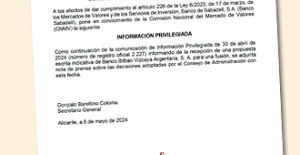The debate about the siltation of the Elbe is also coming to a head within the red-green coalition. "The ninth fairway adjustment has finally failed," said Dominik Lorenzen, co-chairman of the Greens in the Hamburg Parliament, on Wednesday. "Now it's high time for a silt summit, where everyone can look for a way out of this crisis and find sensible solutions for large-scale shipping in the north."
Dirk Kienscherf, chairman of the SPD parliamentary group in the citizenship, contradicted his parliamentary colleague and coalition partner Lorenzen: "The concept of the fairway adjustment did not fail, the federal government did not fulfill its tasks more difficultly," he said. “This is absolutely negligent behavior, also towards the employees in the port. At this point, we now expect the federal government to finally carry out its tasks.”
Hans-Heinrich Witte, President of the Federal Directorate-General for Waterways and Shipping, had previously repeated his authority's investigation from the beginning of November in "Zeit". Instead of the original 1.90 meters of additional draft, only 20 to 90 centimeters are currently possible after the deepening and widening of the Elbe, which was completed in January.
According to Witte, the reasons for this are settlement movements of the river bed after the construction work, storm surges from the North Sea and too little water from the upper reaches of the Elbe. It may take "three to five years" for the river bed to reach the planned depth again through dredging. The first improvements can be expected in "up to two years", said Witte.
There were prompt reactions from Hamburg on Thursday: The environmental organizations BUND, Nabu and WWF reiterated their demands for the dredgers to be withdrawn, the Hamburg port industry called for a quick solution to the silt problem from the federal government. It is urgently necessary "for the federal government to find solutions that can be implemented in the short term and without bureaucracy and to take measures to restore the target water depths on the federal waterway Elbe," said Norman Zurke, general manager of the manufacturing port of Hamburg.
According to information from WELT, the heads of the state and senate chancelleries from Lower Saxony, Schleswig-Holstein and Hamburg will meet for another crisis summit on December 9th to find a long-term solution for the deposition of sediments outside the Lower Elbe. The economics and transport ministers of the coastal states had already discussed this in Hamburg last Friday.
Hamburg wants to end the so-called "circulatory dredging", in which sediment from the harbor basin and the Hamburg part of the Elbe is deposited on the Elbe island of Neßsand on the state border with Schleswig-Holstein. From there, the silt returns to Hamburg within a few weeks. Hamburg's contract with Schleswig-Holstein for the deposit of sediment at buoy E 3 near Heligoland expires at the end of the month. Hamburg therefore wants to bring sediment to the island of Scharhörn, which belongs to Hamburg, off Cuxhaven in the short term. Lower Saxony has announced that it will sue.
“We are still in dialogue about this. Discussions are ongoing at a political and technical level," said Hamburg's Economics Senator Michael Westhagemann (independent) of the WELT. "Our goal of avoiding circular dredging is also shared by all countries." His authority has already updated the documents "that prove the compatibility of the project": "We only want to use the disposal point in Hamburg's outer Elbe until we have a sufficient framework for action via other disposal sites, which we are investigating in parallel."
Lower Saxony's Economics Minister Olaf Lies (SPD) proposed last week to examine an area on the so-called "deep water roadstead" around 30 kilometers west of Helgoland, as a joint disposal area of the federal government and the coastal states in the exclusive German economic zone (AWZ). This area can probably be used from autumn 2023, said Lies at the ministerial conference in Hamburg City Hall.
In the red-green coalition in Hamburg, however, the Schlick differences are becoming increasingly clear. "We have to realize that the depths required for large container shipping cannot be maintained in the long term, despite the recent deepening of the Elbe," said Environment Senator Jens Kerstan (Greens) of WELT.
Like Lower Saxony and Schleswig-Holstein, Kerstan is against depositing Elbe silt near Scharhörn. “The protection of the Wadden Sea is very important to me and we now need a summit at the highest political level to develop a strategy together. We note that Lower Saxony does not feel sufficiently involved, but that can be cured."

 Sabadell rejects the merger with BBVA and will fight to remain alone
Sabadell rejects the merger with BBVA and will fight to remain alone In Germany, the far left wants to cap the price of “doner kebabs”
In Germany, the far left wants to cap the price of “doner kebabs” Israel-Hamas war: Gaza between hope of truce and fear of Israeli offensive in the South
Israel-Hamas war: Gaza between hope of truce and fear of Israeli offensive in the South “Mom, Dad, please don’t die”: in the United States, a nine-year-old child saves the lives of his parents injured in a tornado
“Mom, Dad, please don’t die”: in the United States, a nine-year-old child saves the lives of his parents injured in a tornado The presence of blood in the urine, a warning sign of bladder cancer
The presence of blood in the urine, a warning sign of bladder cancer A baby whose mother smoked during pregnancy will age more quickly
A baby whose mother smoked during pregnancy will age more quickly The euro zone economy grows in April at its best pace in almost a year but inflationary pressure increases
The euro zone economy grows in April at its best pace in almost a year but inflationary pressure increases Children born thanks to PMA do not have more cancers than others
Children born thanks to PMA do not have more cancers than others “House of the Dragon”, “Succession”… Max, the new streaming platform from HBO and Discovery, launched in France on June 11
“House of the Dragon”, “Succession”… Max, the new streaming platform from HBO and Discovery, launched in France on June 11 The A13 motorway will finally reopen this Friday, in one direction only
The A13 motorway will finally reopen this Friday, in one direction only TNT commission of inquiry: tensions between LFI deputies and Macronists before the vote on the report
TNT commission of inquiry: tensions between LFI deputies and Macronists before the vote on the report Apple unveils a new, more efficient iPad range
Apple unveils a new, more efficient iPad range The Gaza War invites itself to the 2024 Pulitzer Prizes
The Gaza War invites itself to the 2024 Pulitzer Prizes Judith Godrèche presents a short film on sexual violence in Cannes
Judith Godrèche presents a short film on sexual violence in Cannes Kevin Spacey: new trial in sight in London for the American actor, for sexual assault
Kevin Spacey: new trial in sight in London for the American actor, for sexual assault Taylor Swift fans make London pub Black Dog their new place of pilgrimage
Taylor Swift fans make London pub Black Dog their new place of pilgrimage Omoda 7, another Chinese car that could be manufactured in Spain
Omoda 7, another Chinese car that could be manufactured in Spain BYD chooses CA Auto Bank as financial partner in Spain
BYD chooses CA Auto Bank as financial partner in Spain Tesla and Baidu sign key agreement to boost development of autonomous driving
Tesla and Baidu sign key agreement to boost development of autonomous driving Skoda Kodiaq 2024: a 'beast' plug-in hybrid SUV
Skoda Kodiaq 2024: a 'beast' plug-in hybrid SUV The home mortgage firm rises 3.8% in February and the average interest moderates to 3.33%
The home mortgage firm rises 3.8% in February and the average interest moderates to 3.33% This is how housing prices have changed in Spain in the last decade
This is how housing prices have changed in Spain in the last decade The home mortgage firm drops 10% in January and interest soars to 3.46%
The home mortgage firm drops 10% in January and interest soars to 3.46% The jewel of the Rocío de Nagüeles urbanization: a dream villa in Marbella
The jewel of the Rocío de Nagüeles urbanization: a dream villa in Marbella Institutions: senators want to restore the accumulation of mandates and put an end to the automatic presence of ex-presidents on the Constitutional Council
Institutions: senators want to restore the accumulation of mandates and put an end to the automatic presence of ex-presidents on the Constitutional Council Europeans: David Lisnard expresses his “essential and vital” support for François-Xavier Bellamy
Europeans: David Lisnard expresses his “essential and vital” support for François-Xavier Bellamy Facing Jordan Bardella, the popularity match turns to Gabriel Attal’s advantage
Facing Jordan Bardella, the popularity match turns to Gabriel Attal’s advantage Europeans: a senior official on the National Rally list
Europeans: a senior official on the National Rally list These French cities that will boycott the World Cup in Qatar
These French cities that will boycott the World Cup in Qatar “The future is for us”: “disappointed” and “proud” at the same time, Al-Khelaïfi sees the glass half full after the elimination of PSG
“The future is for us”: “disappointed” and “proud” at the same time, Al-Khelaïfi sees the glass half full after the elimination of PSG PSG: “Since January, these have not been my best matches,” agrees Zaire-Emery, who promises to “come back stronger”
PSG: “Since January, these have not been my best matches,” agrees Zaire-Emery, who promises to “come back stronger” “What is this question, honestly?” : Nasser Al-Khelaïfi (very) annoyed after PSG-Dortmund
“What is this question, honestly?” : Nasser Al-Khelaïfi (very) annoyed after PSG-Dortmund “I am the guy who has to score the goals”: Mbappé does not hide and assumes responsibility after PSG’s exit
“I am the guy who has to score the goals”: Mbappé does not hide and assumes responsibility after PSG’s exit


















